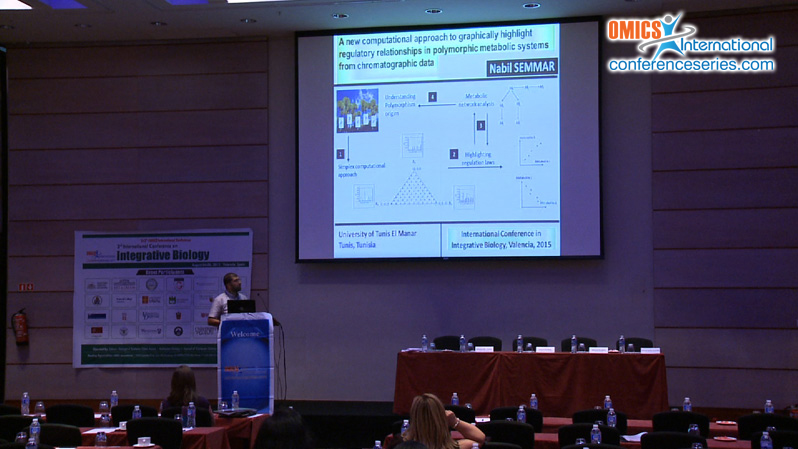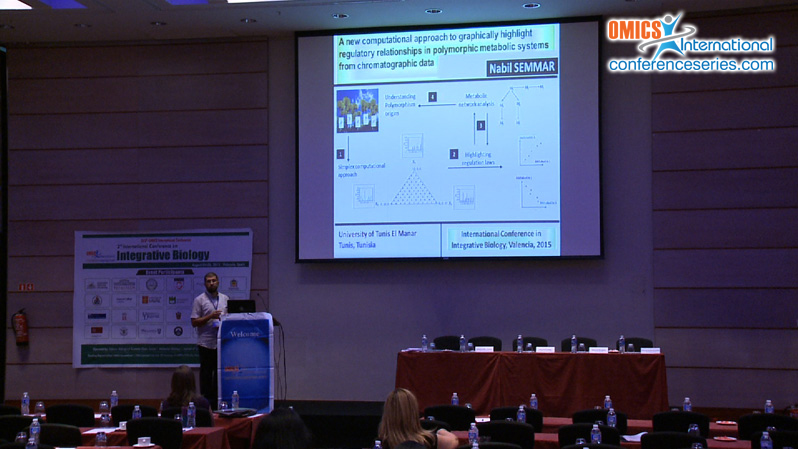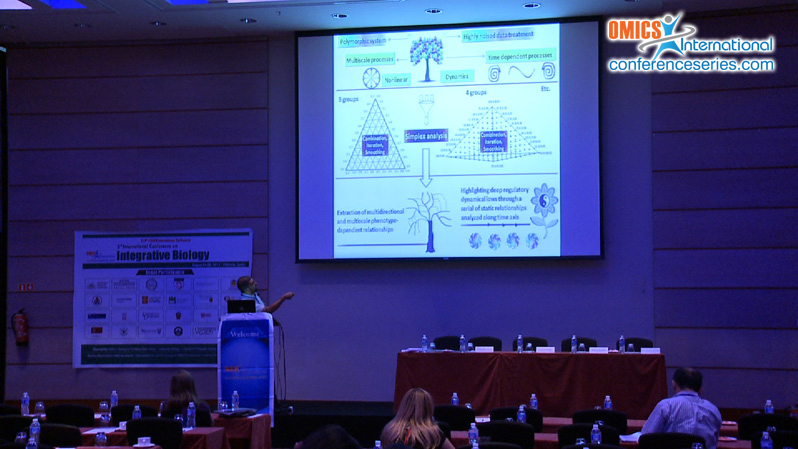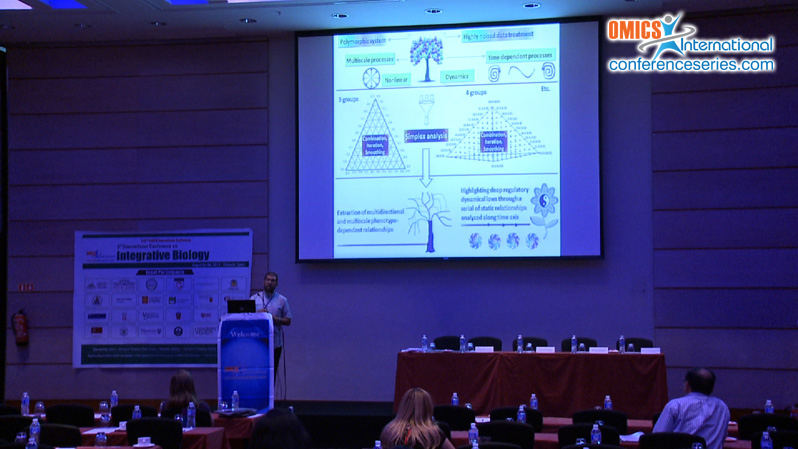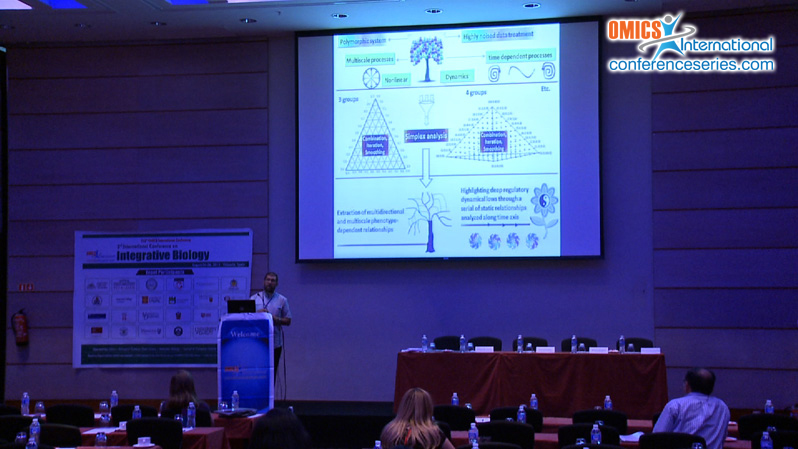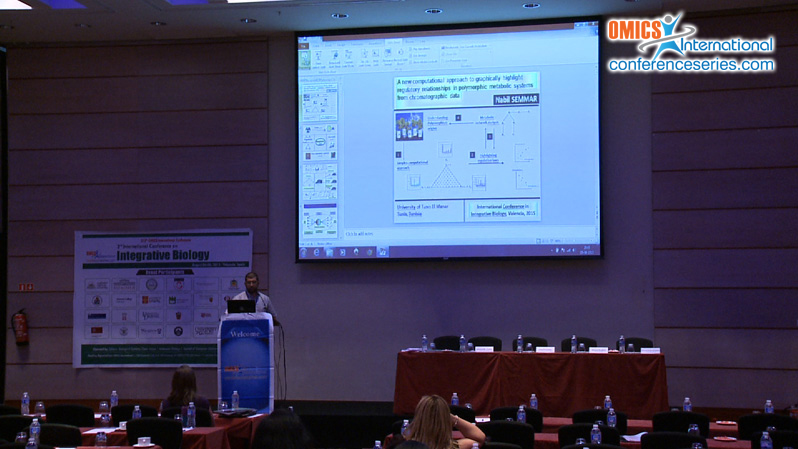
Nabil Semmar
Institut Supérieur des Sciences Biologiques Appliquées de Tunis, Tunisia
Title: A new computational approach to graphically highlight regulation relationships in metabolic systems from chromatographic data
Biography
Biography: Nabil Semmar
Abstract
A new computational approach was developed to highlight some metabolic order by statistically exploring the variability between and within chromatographic profiles representing different states in the studied population. The approach consisted in combining metabolic variability of chromatographic profiles initially classified into metabolic trends (MbTrs). Illustration was based on 248 profiles of plasmatic L-dopa and its metabolites (3-OMD, DOPAC and HVA) analysed at different times (after L-dopa administration) in 34 patients suffering from Parkinson disease. After statistical classification of the population into different MbTrs, classified profiles were iteratively combined in silico by applying a Scheffé’s mixture design. To take into account the variability within and between MbTrs, the mixture design was iterated k times by bootstrap leading to k response matrices that were averaged to obtain a complete set of smoothed profiles representing gradual regulations between metabolites. Smoothed response data were used to graphically analyse backbone of the metabolic system. The results highlighted MbTr-dependent relationships between metabolites, revealing high metabolic flexibility. Apart from this static application, the same iterative algorithm was applied to separate data subsets corresponding to different sampling times. From 3-D plots (time t, metabolite x, metabolite y), smoothed results highlighted a counter-clock hysteresis between a precursor (DOPAC) and its derivative (HVA) suggesting a lag between metabolic regulations; such a process was compatible with the metabolic pathways.
Speaker Presentations
Speaker PDFs
Speaker PPTs Click Here

